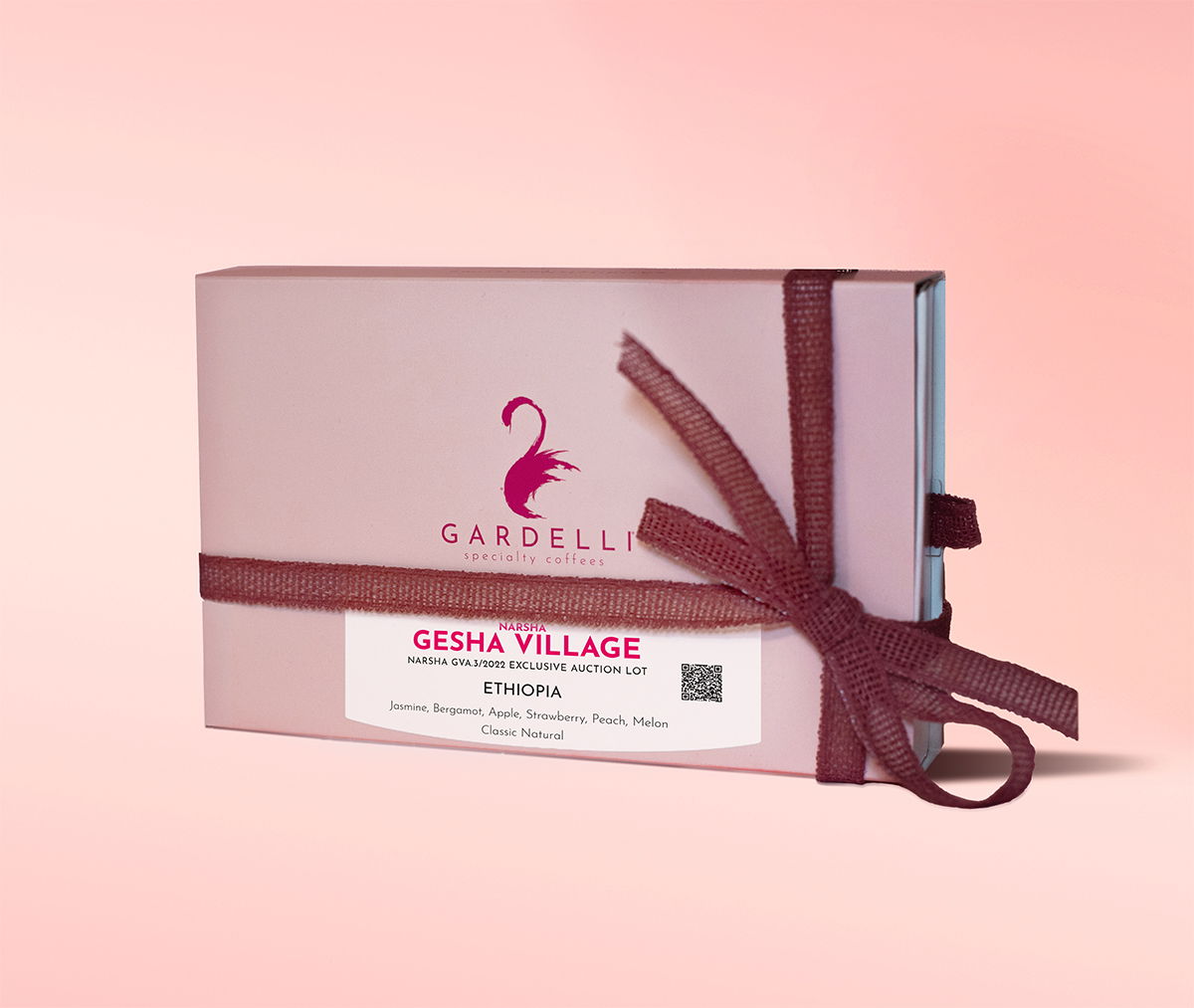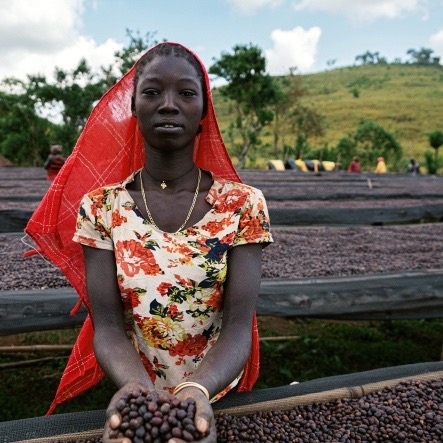






Ethiopia
100g
Cup Notes: Jasmine, Bergamot, Apple, Strawberry, Peach, Melon
Suggested for espresso and filter
when we roast
We freshly roast to order all coffees on Monday, Wednesday and Friday (excluding national holidays), and ship the same day! Cut-off time is 11:59pm (UTC+1) of the day before the roast day. *We only ship whole beans*
Gesha Village Estate is an exciting and inspiring project from Adam Overton and Rachel Samuel, realised with the help of many talented individuals.
There are so many reasons why you absolutely want to lay your hands on this Geisha Village lot! It is truly an exclusive lot - we are the only roastery worldwide that can proudly offer it. The lot was bought in an auction, in which GSC participated for the second year in a row, and it turned out to be the most expensive lot. Rubens was determined to obtain it at any cost and managed to outbid any competition, since, according to his sensory assessment, this was the absolutely best lot offered by the Gesha Village in this year's auction. We love how it showcases this exquisite variety and its terroir, and how classic natural fermentation helps bring out the best of the terroir.
The coffee farm is located near the Gori Gesha forest in far western Ethiopia, the place considered to be the origin of the Gesha lineage that has since traveled so far. This particular lot was cultivated in Narsha block, which is the smallest one in the whole farm. Located in the southern area of Gesha Village, it’s named after an indigenous tree that is prolific in the area.
In 2011 Adam and Rachel began developing a 500-hectare coffee farm in Gesha, Ethiopia with one vision in mind: to produce the best coffee in the world. After an exhaustive search, the estate location was chosen based on their strict criteria of altitude, ample rainfall, temperature patterns, rich virgin forest soil, old growth trees, and an existing coffee ecosystem.
A seed selection has been harvested from the Gori Gesha wild coffee forest found 20 km from the farm, the site where the famous Panamanian Gesha was selected in the 1930s.
In their first three years they planted over 30,000 native shade trees on land that had previously been deforested.
Research, conservation, and exploration of the Gesha variety are ongoing focuses of their farm. They have started projects on genetic testing, climate research and a Gesha botanical garden.

Rare, exclusive and fetching a heavy price tag, Gesha is often associated with coffees from Panama when in fact cultivation of the Gesha varietal only began there in the 1960s.
Gesha is an original variety of coffee that was discovered in the 1930s in the mountains around the Southwestern town of Gesha, Ethiopia. Gesha trees grow tall and can be distinguished by their beautiful and elongated leaves. The quality of this coffee can be drastically improved when grown at extremely high elevation.
The Geisha revolution set off a intense search for Geisha among coffee buyers and a primal pilgrimage to Ethiopia to find the source of that flavor. The roads those buyers traveled brought them in a wood in far western Ethiopia near a small town called Gesha in the forests where coffee was born and still grows wild.
Gesha 1931 is from this place.
Its name reflects the place and year it was collected by scientists who fanned out on a research expedition in Ethiopia to catalogue its coffee varieties.

Dry process seems simple: pick the fruit, lay it out in the sun until it turns from red to brown to near-black, and then hull off the thick, dried outer layer in one step to reveal the green bean. It is a method suited to arid regions, where the sun and heat can dry the seed inside the intact fruit skin.
It's often referred to as "natural coffee" because of its simplicity, and because the fruit remains intact and undisturbed, a bit like drying grapes into raisins. Since it requires minimal investment, the dry process method is a default to create cheap commodity-grade coffee in areas that have the right climate capable of drying the fruit and seed.
But it’s a fail in humid or wet regions. If the drying isn't progressing fast enough, the fruit degrades, rots or gets covered with mould.
Dry-processed coffees can also be wildly inconsistent. If you want a cleanly-fruited, sweet, intense cup, dry process (DP) takes more hand labor than wet process. Even the most careful pickers will take green unripe or semi-ripe coffee off the branch as they pick red, ripe cherry. If these are not removed in the first days of drying, the green turns to brown that is hard to distinguish from the ripe fruit.
For this lot, the coffee bean was dried inside the cherry as the whole coffee fruit. The drying was subsequently completed on raised African beds in full sun for 21-40 days.
